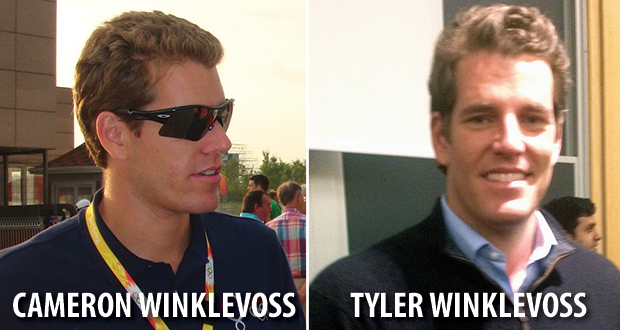 Internet entrepreneurs Cameron and Tyler Winklevoss have won a motion for summary judgment in a multi-million-dollar Facebook-related lawsuit resulting from a soured collaboration.
Internet entrepreneurs Cameron and Tyler Winklevoss have won a motion for summary judgment in a multi-million-dollar Facebook-related lawsuit resulting from a soured collaboration.
To reach the decision, Superior Court Judge Thomas P. Billings created a small rift of his own with his colleagues on the Business Litigation Session bench.
Just as the Winklevoss twins famously claim that Facebook founder Mark Zuckerberg ripped off their ConnectU social network, plaintiff Wayne Chang alleges that the Winklevosses cheated him out of a stake in ConnectU — and a $65 million settlement the twins ultimately reached with Zuckerberg and Facebook.
Chang is an accomplished entrepreneur, too, most famous for founding Crashlytics, which was acquired by Twitter in 2013 for more than $100 million. His 2009 lawsuit stems from a plan five years earlier to integrate the Winklevosses’ ConnectU with Chang’s file-sharing service i2hub — a plan that was aborted the following year.
The twins’ father, Howard Winklevoss, and ConnectU co-founder Divya Narendra also are named as defendants in the suit. Chang alleges that he formed a partnership with the defendants and is entitled to 50 percent of the Facebook settlement. Alternatively, Chang asserts that he is at least entitled to 15 percent of the proceeds based on a November 2004 memorandum of understanding that gave him the option to exercise a 15 percent stake in ConnectU if conditions were met.
ConnectU itself also was originally named a defendant in the suit. In an April 2011 decision on the defendants’ motion to dismiss, however, Judge Peter M. Lauriat notes that “because ConnectU is now wholly owned by Facebook, Chang cannot recover from ConnectU. Rather, he would have to recover from the Winklevoss defendants a percentage of the settlement proceeds in proportion to his interest in ConnectU, as determined by a fact finder.”
At a hearing in February 2013, Judge Mitchell H. Kaplan encouraged Chang to dismiss ConnectU from the suit based on Lauriat’s finding.
“It would appear that the proceeds — that the only asset of ConnectU were the proceeds of the settlement,” Kaplan said at the hearing, according to a transcript. “And this lawsuit is about that, and ConnectU doesn’t assert any right independently to those proceeds; correct?”
Chang subsequently dismissed ConnectU from the suit voluntarily. At the summary judgment phase, Chang argued that Lauriat’s finding that any recovery would have to come from the Winklevoss defendants was “law of the case.” Billings, however, accepted the defendants’ characterization of the finding as mere “footnoted dictum.”
“Respectfully, I disagree with my colleague, the motion judge, on this point,” Billings writes in the Dec. 24 order granting the Winklevosses summary judgment. “… Under the law of Delaware, where ConnectU LLC was organized, members of an LLC are not obligated personally on the debts of the LLC ‘solely by reason of being a member or acting as manager of the limited liability company.’ … It follows that a contract claim against a corporation does not, upon a change in ownership, become a claim against its former shareholders.”
Billings’ reversal of Lauriat on that point knocked out Chang’s “option claim” against the Winklevoss defendants. Billings also dismissed Chang’s “partnership claim” largely on the basis of an online chat between Chang and Tyler Winklevoss.
“What comes through most clearly in the May 25[, 2005] chat is both sides’ eagerness to extract themselves from one another and their shared business venture,” Billings writes. “While they agreed on little else (who was at fault, who owed what to whom, etc.), they clearly agreed that the venture was over, and their conduct thereafter confirmed it. Given the informality with which this partnership (if it was one) was administered and accounted for, it should come as no surprise that both sides decided, eventually, simply to walk away — at least, until the Facebook settlement.”
Chang’s lawyer, Alan D. Rose Jr. of Boston’s Rose, Chinitz & Rose, says “we respectfully disagree with the decision and will appeal.”
Winklevoss lawyer Tyler Meade of California’s Meade & Schrag declines to comment.
The defendants opened their memorandum in support of their motion for summary judgment by stating that it was “based on the principle … that a party may not disavow a partnership when the changes of profit seem remote and then, four and a half years later, take the opposition position after his former associates have obtained a recovery exclusively from their own efforts.”
Photo credit: “Cameron Winklevoss at the 2008 Beijing Olympics – 20080817” by Johnnyroee. – Own work.. Licensed under CC BY 3.0 via Wikimedia Commons -http://commons.wikimedia.org/wiki/File:Cameron_Winklevoss_at_the_2008_Beijing_Olympics_-_20080817.jpg#mediaviewer/File:Cameron_Winklevoss_at_the_2008_Beijing_Olympics_-_20080817.jpg
 New England Biz Law Update
New England Biz Law Update
